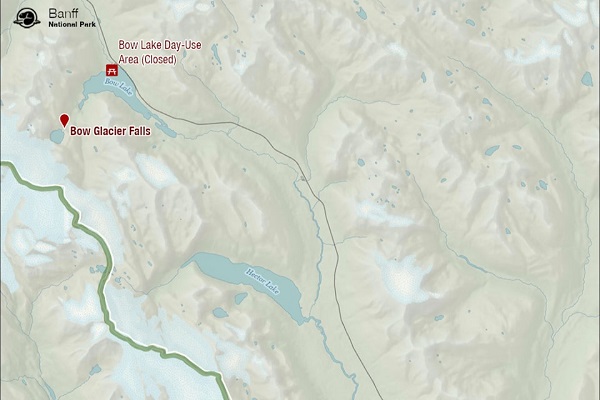conflict
Pete Hegseth says adversaries should take Trump administration seriously
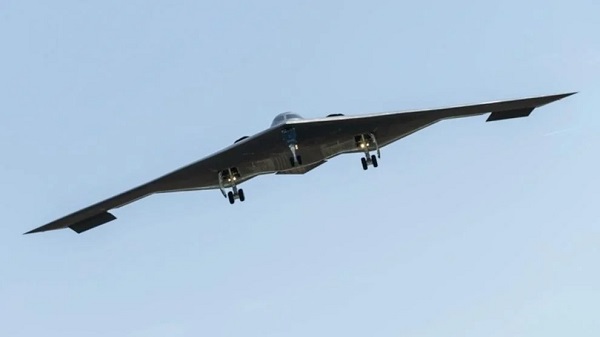
Quick Hit:
Defense Secretary Pete Hegseth on Sunday praised the success of U.S. airstrikes that shattered Iran’s nuclear infrastructure and said the mission was intended to eliminate the threat—not escalate a war.
Key Details:
-
Hegseth said the mission was “not, has not been about regime change,” but about neutralizing threats to U.S. national interests and defending allies like Israel.
-
The Pentagon said the strike was successful, with precision munitions hitting their intended targets and devastating key Iranian nuclear sites.
-
Hegseth urged Iran to take the opportunity to negotiate, warning that U.S. military capabilities are “nearly unlimited” and that the choice for peace lies with Tehran.
💥 PETE HEGSETH: Thanks to President Trump…Iran's nuclear visions have been OBLITERATED. pic.twitter.com/NOvHtSZlUY
— MxM News (@mxmnews) June 22, 2025
Diving Deeper:
Defense Secretary Pete Hegseth on Sunday reinforced the Trump administration’s position that the latest U.S. military strikes on Iran were tightly focused on neutralizing nuclear threats—not overthrowing the regime in Tehran.
“This mission was not, has not been about regime change,” Hegseth said during a press briefing at the Pentagon alongside Joint Chiefs Chairman Gen. Dan Caine. “The President authorized a precision operation to neutralize the threats to our national interests posed by the Iranian nuclear program and to defend our troops and ally Israel.”
The strikes, carried out Saturday night, followed Iran’s continued refusal to engage in meaningful diplomatic talks. After weeks of escalating tension, Israel launched a massive missile barrage that shattered Iran’s missile defense systems. That attack was soon followed by U.S. precision strikes targeting three major Iranian nuclear sites.
Hegseth confirmed that the Pentagon’s battle damage assessment is still underway but said “all of our precision munitions struck where we wanted them to strike, and had the desired effect.”
Now, he said, Iran has a window of opportunity to choose peace. “I can only confirm that there are both public and private messages being directly delivered to the Iranians in multiple channels, giving them every opportunity to come to the table,” Hegseth told reporters. “They understand precisely what the American position is, precisely what steps they can take to allow for peace, and we hope they do so.”
He noted the mission was intentionally limited in scope to send a specific message. “That’s the message that we’re sending. With the capabilities of the American military nearly unlimited… Iran, in that sense, has a choice,” he said. “Now is the time to come forward for peace.”
According to Hegseth, the stealth nature of the operation caught Iran completely off guard—delivering a clear message about American power and resolve under President Trump.
“The scope and scale of what occurred last night would take the breath away of almost any American if you had an opportunity to watch it in real time,” Hegseth said. “Tehran is certainly calculating the reality that planes flew from the middle of America in Missouri overnight, completely undetected over three of their most highly sensitive sites, and we were able to destroy nuclear capabilities—and our boys in those bombers are on their way home right now.”
Hegseth concluded by praising the performance of U.S. forces, saying he was “proud of how this building operated, of the precision, the sensitivity and the professionalism of the troops involved.”
conflict
Fordow obliterated: Israeli report confirms nuclear site inoperable
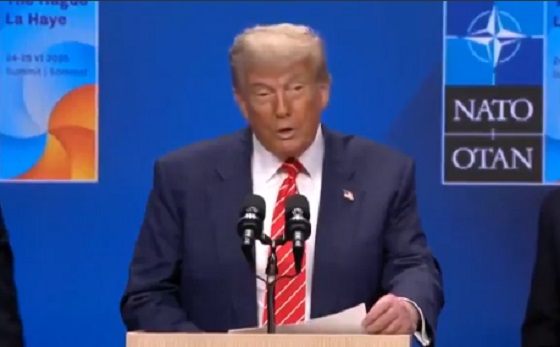
Quick Hit:
Israel confirmed Wednesday that the U.S. airstrike on Iran’s Fordow nuclear site over the weekend caused severe damage, rendering the facility “inoperable.” Israeli officials say the operation has significantly delayed Iran’s nuclear ambitions.
Key Details:
- The Israeli Prime Minister’s Office said the U.S. strike destroyed key infrastructure at Fordow and crippled Iran’s uranium enrichment capability at the site.
- The statement, delivered on behalf of the Israel Atomic Energy Commission, concluded that combined U.S. and Israeli strikes have set Iran’s nuclear weapons program back “by many years.”
- President Trump praised the success of the operation during remarks at the NATO summit in Brussels, calling it a “joint Israeli-American victory” and likening it to Israel’s decisive 1967 Six Day War.
.@POTUS reads a letter from the Atomic Energy Commission of Israel, stating that "the devastating U.S. strike on Fordow destroyed the site's critical infrastructure and rendered the enrichment facility totally inoperable." pic.twitter.com/KDFjLJ5pJf
— Rapid Response 47 (@RapidResponse47) June 25, 2025
Diving Deeper:
On Wednesday, the Israeli government released an official statement confirming that a U.S. airstrike on Iran’s Fordow nuclear facility had effectively shut down operations at the controversial site. The announcement came shortly after President Donald Trump previewed the findings during a press conference at the NATO summit in Brussels, noting that Israeli intelligence would provide details on the mission’s results.
“The devastating U.S. strike on Fordow destroyed the site’s critical infrastructure and rendered the enrichment facility inoperable,” read the statement issued by Prime Minister Benjamin Netanyahu’s office on behalf of the Israel Atomic Energy Commission. The report concluded that the joint American and Israeli military campaign had “set back Iran’s ability to develop nuclear weapons by many years.”
Officials added that this delay in Iran’s nuclear capabilities could continue “indefinitely,” provided Tehran is prevented from obtaining new sources of nuclear material.
Fordow has long been one of the most heavily fortified and secretive components of Iran’s nuclear program, buried deep beneath a mountain near the city of Qom. Intelligence analysts had previously identified it as a central hub for uranium enrichment—one of the final steps in developing a nuclear weapon.
President Trump, who authorized the airstrikes over the weekend, hailed the mission’s outcome as a strategic triumph. Referring to the brief but intense military confrontation as the “12 Day War,” Trump drew historical parallels to Israel’s famed Six Day War in 1967, underscoring the speed and precision of the operation.
“This was a joint Israeli-American victory,” Trump said. “And we achieved it without a prolonged conflict or massive deployment.”
The Fordow strike followed a series of precision attacks by Israel on other elements of Iran’s nuclear and military infrastructure. Together, the coordinated efforts appear to have dealt a major blow to Tehran’s nuclear ambitions, though experts caution that Iran’s response in the coming weeks remains uncertain.
The Israeli report marks the first formal assessment from a government directly involved in the strikes and is likely to shape future international discussions on Iran’s nuclear path.
conflict
Despite shaky start, ceasefire shows signs of holding
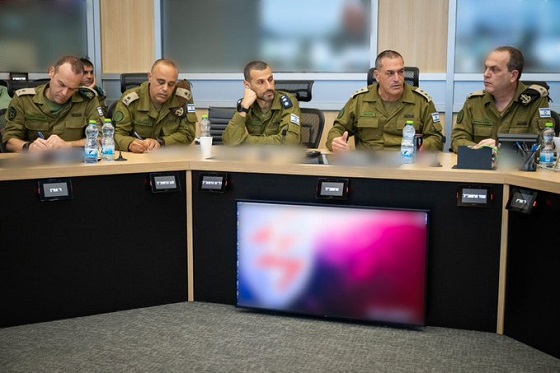
Chief of the General Staff LTG Eyal Zamir during a situational assessment following the beginning of the ceasefire with Iran
Quick Hit:
A fragile ceasefire between Israel and Iran appeared to hold Tuesday after early strikes from both sides threatened to unravel it. President Trump, who brokered the deal, criticized the violations and pushed both nations to stand down.
Key Details:
- Trump declared a “complete and total ceasefire” late Monday after Iran fired missiles at a U.S. base in Qatar in response to American strikes on its nuclear sites.
- Hours after the ceasefire was set to begin, Israel accused Iran of violating it by firing missiles into its territory—claims Tehran denied, even as explosions and air raid sirens rocked northern Israel.
- Trump publicly criticized both nations, stating “they don’t know what the f*** they’re doing,” and later confirmed that Israeli warplanes would turn back instead of launching a broader retaliation.
Diving Deeper:
Calm returned to parts of the Middle East Tuesday as a U.S.-brokered ceasefire between Israel and Iran began to settle in—though not without incident. For nearly two weeks, the region was on the brink of a broader war, ignited by Israeli strikes on Iranian nuclear and military targets and exacerbated by retaliatory attacks from Tehran.
President Donald Trump took credit for halting the hostilities. “ISRAEL is not going to attack Iran,” he wrote on Truth Social. “All planes will turn around and head home, while doing a friendly ‘Plane Wave’ to Iran. Nobody will be hurt, the Ceasefire is in effect!”
Despite the ceasefire’s official start early Tuesday morning, it nearly unraveled within hours. Israeli officials said Iran launched at least two missiles after the truce deadline, though they were intercepted before impact. Iran, meanwhile, denied any post-deadline strikes and blamed Israel for earlier attacks.
Speaking before leaving for a NATO summit, Trump said both sides had violated the agreement and did not hold back his frustration. “We basically have two countries that have been fighting so long and so hard that they don’t know what the f*** they’re doing,” he said, adding that he was “not happy with Israel.”
Still, the agreement held. Israeli Prime Minister Benjamin Netanyahu’s office said the country stood down from further attacks following a direct conversation with Trump. Israel claimed to have achieved its objectives, including weakening Iran’s nuclear and missile capabilities.
The conflict’s origin traces back to Israeli fears that Iran was nearing the threshold of building nuclear weapons, despite Tehran’s insistence that its program is for peaceful energy purposes. Over the weekend, the U.S. deepened its involvement by launching bunker-buster bombs on Iranian nuclear sites. Iran responded with a limited strike on a U.S. base in Qatar—an attack Washington said came with advance warning and caused no casualties.
Meanwhile, fallout from the war continues to spread. Israeli officials said at least 28 of their citizens have been killed and over 1,000 injured. Iranian casualty estimates are far higher, with nearly 1,000 reported dead, including hundreds of civilians and military personnel, according to the Human Rights Activists group.
Even as the ceasefire sets in, the risk of broader conflict remains. Pro-Iran militias in Iraq reportedly launched drone attacks on U.S. bases overnight, though they were intercepted without casualties. The U.S. has begun evacuating American citizens from Israel, and China—one of Iran’s few remaining oil buyers—has condemned the U.S. strikes, warning of a dangerous cycle of escalation.
Trump said he is not seeking regime change in Iran, walking back prior comments. “Regime change takes chaos and, ideally, we don’t want to see much chaos,” he told reporters aboard Air Force One.
Still, the situation remains volatile. The ceasefire, while welcomed, remains fragile—held together largely by Trump’s pressure campaign and the willingness of both sides to pause, if only momentarily, from what could have spiraled into an uncontrollable regional war.
-
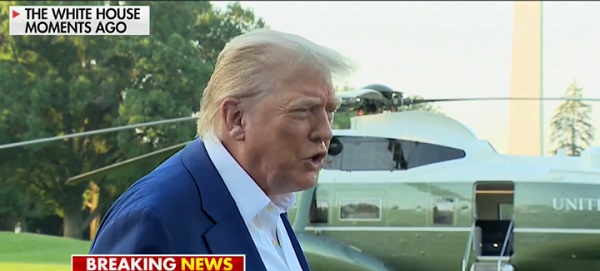
 conflict2 days ago
conflict2 days ago‘They Don’t Know What The F*ck They’re Doing’: Trump Unloads On Iran, Israel
-

 Business1 day ago
Business1 day agoPotential For Abuse Embedded In Bill C-5
-

 conflict1 day ago
conflict1 day agoDespite shaky start, ceasefire shows signs of holding
-

 Health1 day ago
Health1 day ago‘Transgender’ males have 51% higher death rate than general population: study
-

 Alberta1 day ago
Alberta1 day agoSo Alberta, what’s next?
-

 conflict2 days ago
conflict2 days agoWar over after 12 days? Ceasefire reached between Israel, Iran
-

 Bjorn Lomborg1 day ago
Bjorn Lomborg1 day agoThe Physics Behind The Spanish Blackout
-

 Crime2 days ago
Crime2 days agoFlorida rescues 60 missing kids in nation’s largest-ever operation


